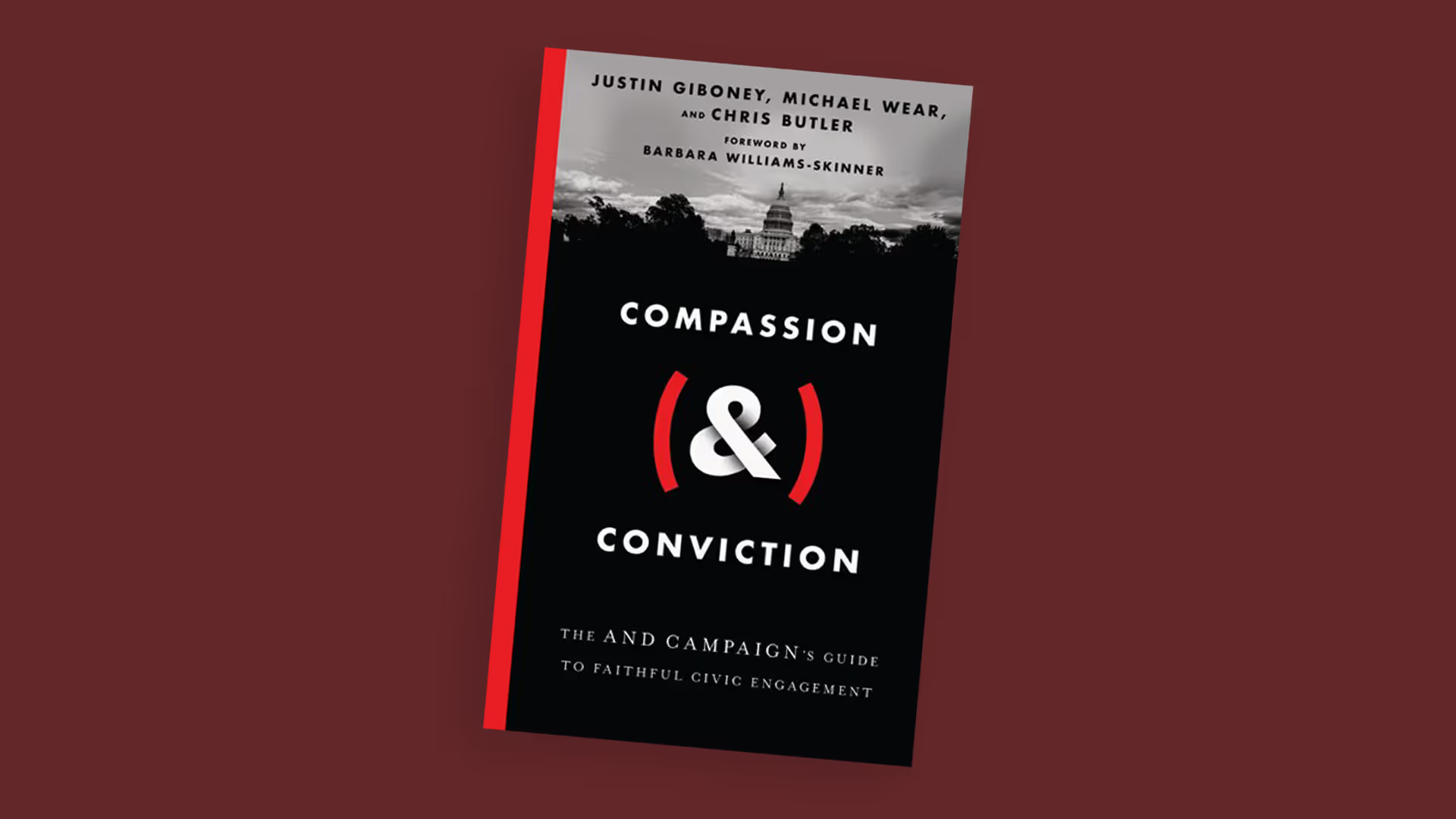A Review of Robert Woodberry, “The Missionary Roots of Liberal Democracy,” American Political Science Review, Vol. 106 No. 2, May 2012.
Robert Woodberry is a name every church planter in urban neighborhoods should know. His 2012 article, “The Missionary Roots of Liberal Democracy” is important, not because we are seeking to establish liberal democracies, but because his study confirms that social reform begins with spiritual reform. Conversionary Protestants whose missionary work prioritized salvation also saw deep, lasting and national-level social transformation. Mission workers who prioritized social transformation saw little lasting results.Woodberry (Ph.D. University of North Carolina, Chapel Hill) is Senior Research Professor at Baylor University Institute for Studies of Religion and Associate Professor at the National University of Singapore, Department of Political Science. His article generated acclaim, winning four article prizes, but also professional animus. Woodberry has picked a fight here with sociologists who want to factor out religion in the rise of democracies. “Social scientists tend to ignore religion in the processes of post-Enlightenment modernization” (244). Woodberry’s point is analogous to what we’ve all noticed about Downton Abbey: religion is missing from the story. Against this, Woodberry argues “that Western modernity, in its current form, is profoundly shaped by religious factors, and although many aspects of this ‘modernity’ have been replicated in countries around the world, religion shaped what spread, where it spread, how it spread, and how it adapted to new contexts.”To a secular scholar, the findings of this study are upsetting. To one who believes that conversionary missionaries furthered the goals of paternalistic colonizers, Woodberry’s findings must simply be wrong. In an interview, he says,
...some people were angry. That came out clearly when I tried to publish the article in the American Sociological Review to no avail. No one publicly critiqued my history or statistics, but the negative reviewer said it made him/her angry. I then submitted the article to APSR. The editor and reviewers asked for tons of additional evidence: case studies of India, China, Botswana, Lesotho and Zimbabwe, analyses at the sub-national level, analysis showing change over time, and analyses showing missions relationship with all my intervening mechanisms. It took 192 pages to write up. Even after all that, I only got a conditional acceptance. After several more resubmissions the editor accepted the article, but then revoked the acceptance because some of his graduate students got upset about it. Some thought I must have coded the variables incorrectly to bias the results. The editor decided he needed to check all my data and coding and rerun all my models. He also required I make my data public so others could check them, before he finally accepted my article again. I’ve never heard of an article that went through a similar level of scrutiny. (Robert Woodberry)
On to the article itself. After the introduction, Woodberry shows the strong association between “conversionary Protestant missionaries” and the development of democracies. (By “conversionary Protestants,” I take him to mean missionaries who call others to repentance and faith in Christ.) Then the article develops the historical connection (not just statistical) between missionaries and democracy. The next two sections present the statistical data, and the test of the association. And finally, the author summarizes his finding and their implications.
Just how did conversionary protestant missionaries give rise to liberal democracies? One way was through printing. Missionaries believed that everyone needed to hear the gospel, needed to be able to possess and read a Bible, and needed to make a personal faith choice. These convictions spurred massive growth in education, literacy, and printing. Western and Eastern elites considered the printing of books “ugly, it spread books to those ‘not qualified to interpret them,’ and it undermined elite status/control” (250). By contrast “within 32 years of importing a [printing] press to India in 1800, three British missionaries printed more than 212,000 copies of books in 40 languages and, along with other missionaries, created the fonts and paper that dominated South Asian printing for much of the nineteenth century” (250). It was Christians who published the first privately printed newspapers in Japanese and Korean. And Woodberry shows that that missionary activity is strongly tied to per capita newspaper circulation in multiple countries through the 1900s.
Given the above convictions, missionaries also promoted education. To read the Bible, one needed to read. Again, elites in the East and West resisted the education of many, especially women and the poor. “Countering this elite pressure, religious groups (particularly conversionary protestants) educated women and the poor and developed techniques that made mass schooling possible, such as teacher training, child-focused texts, dividing students into age/ability groups, etc…. The earliest places with near universal literacy…were typically economic backwaters, but had Protestant-sponsored literacy campaigns” (251). Woodberry concludes that Protestants from many continents are disproportionately educated, even when they may also be disproportionately poor. In other words, economics is not the factor in their education.
Third, missionaries promoted civic engagement. And this is important. As Emerson and Smith point out in Divided by Faith, social change will not come about solely by individuals being saved. Social structures must be addressed by Christians who love their neighbor as Christ loves them. So conversionary protestant missionaries did a great deal of work to promote and protect the development of Non-Governmental Organizations (NGOs) and Social Movement Organizations (SMOs). Through petitions, tracts, rallies, and public speaking, these organizations addressed social problems such as slavery, foot binding, widow burning, genital mutilation, and rape. Showing close correlation, Woodberry argues that “[t]hese organizations and tactics had no precedent internationally” (253). Conversionary protestant missionaries gave rise to them. “In fact, the connection between Protestant missions and NGOs is so pervasive that NGO scholar Estelle James (1989) writes, ‘[A] similar institutional form may not exist in economies that do not have a colonial missionary background (291)’ (253).”After much statistical data—this is a sociology paper after all—Woodberry concludes his findings. Across all contexts, on many continents, Conversionary Protestant missionaries “heavily influenced the rise and spread of stable democracies around the world” (244).Why is this study so important? The results of this study are deeply encouraging to those who plant churches in urban neighborhoods. Indeed, they are encouraging to all who do ministry. (Given Woodberry’s persistence in the face of opposition, he clearly knows the value of this study for the rest of us.) We live and minister by faith. We don’t often see the results of our work. So we say to one another “we may not know the results of such-and-such an effort until we get to heaven.” That future orientation is important and appropriate. But here we have a tangible affirmation that cross-centered, Christ-first ministry is profoundly fruitful.Putting the proclamation of the gospel first will bring about the greatest and most lasting change in the people and communities you seek to reach. This is why Mez McConnell has said that preaching gospel doctrine is one of the best starting points of ministry in Scotland’s schemes:
One objection that I hear from time to time is that poor communities typically have less access to quality education, which means the people in those communities do not have the necessary tools to learn doctrine…If you try, you will shoot over their heads and lose their interest…Honestly, such attitudes strike me as paternalistic and condescending. Poor people are poor, but they are not stupid. They are just as capable of understanding the character and ways of God as anyone else. Paul didn’t write his letters to the faculty of a seminary. His readers were generally not wealthy, privileged, or well-educated. And the Israelites leaving Egypt didn’t have advanced degrees in theology, but God didn’t hesitate to tell them all kinds of in-depth and complicated things about himself. (Sent Out as Sheep Among Wolves)
So as we minister with compassion, we need to remember that the message of good news, beginning with the bad news about sin, is deeply compassionate and loving. It will bring about the greatest help and hope for all who need it. And that will also bring the greatest glory to Christ.Church planters and team members are susceptible to the doctrines of our age. Preaching sin, repentance, and conversion is a crime in the court of philosophical pluralism. Which is why Woodberry’s study is a gift for the mission of planting churches among hard-hit urban neighborhoods. It puts numbers and historical evidence to the truth that the cross of Christ is powerful. In many of the poorest urban neighborhoods, there are problems which we cannot redress without the gospel. These are God-sized, gospel-sized problems. We must not be tempted to lose our theological heads when we work in the neighborhood. Cross-centered love is powerful. New England’s neglected inner cities—Boston, Worcester, Providence, Hartford, etc—deserve the best gospel-rich churches we plant and support.Woodberry’s study should lead us to consider the following. First, is our philosophy of church planting firmly grounded in the gospel? Do we lead with it? Is it explicit or merely implied. Second, are your team members also committed to this perspective? If not, you will be pulling in different directions, making your team unfruitful. Third, do you have a means of theologically educating those you are reaching? We want to develop men and women from the neighborhoods in theologically rich truth. ESL is a good start for those who are not comfortable with English and want to be. But beyond ESL, are we helping English speakers be better students of God’s word? In some of the communities we care about, less than 5% of the children can read at grade level. And this will likely be reflected in adult literacy also.
The conclusions of this article correspond closely with the truth of God’s Word: Matthew 12:33 says, “Make a tree good and its fruit will be good, or make a tree bad and its fruit will be bad, for a tree is recognized by its fruit.” Change takes place in concentric circles, beginning in the heart and working outward into society—sometimes all the way to national reform, as Woodberry shows. As many have rightly said in recent years, justification and justice can’t be separated. But the order matters.If you are interested in being a church planter, or church plant team member, please contact us. We have identified New England urban neighborhoods that need diverse, sustainable, gospel-centered churches. In partnership with Acts 29/Church in Hard Places, NEU Church Planting offers a community of like-minded workers, coaching for financial sustainability, long-term care, shared ministry services and the full range of training and coaching. This is different than all other church planting, and we get that.



